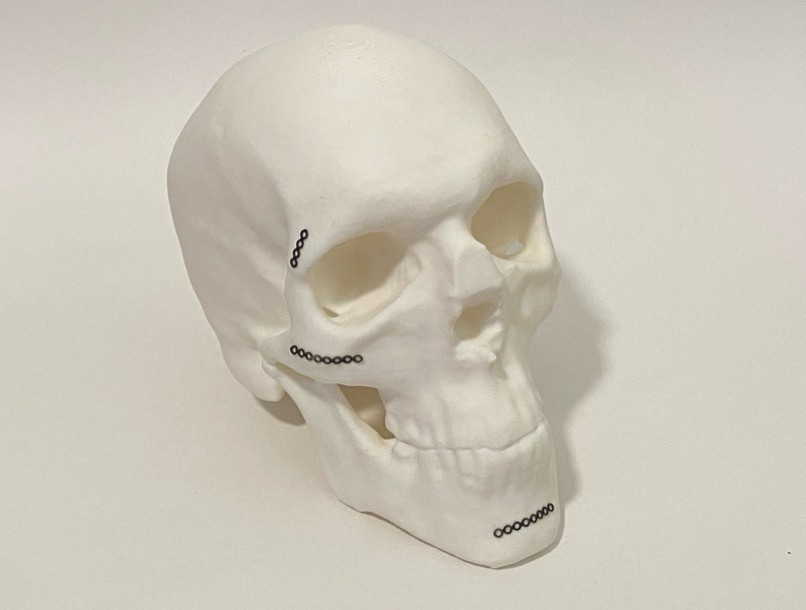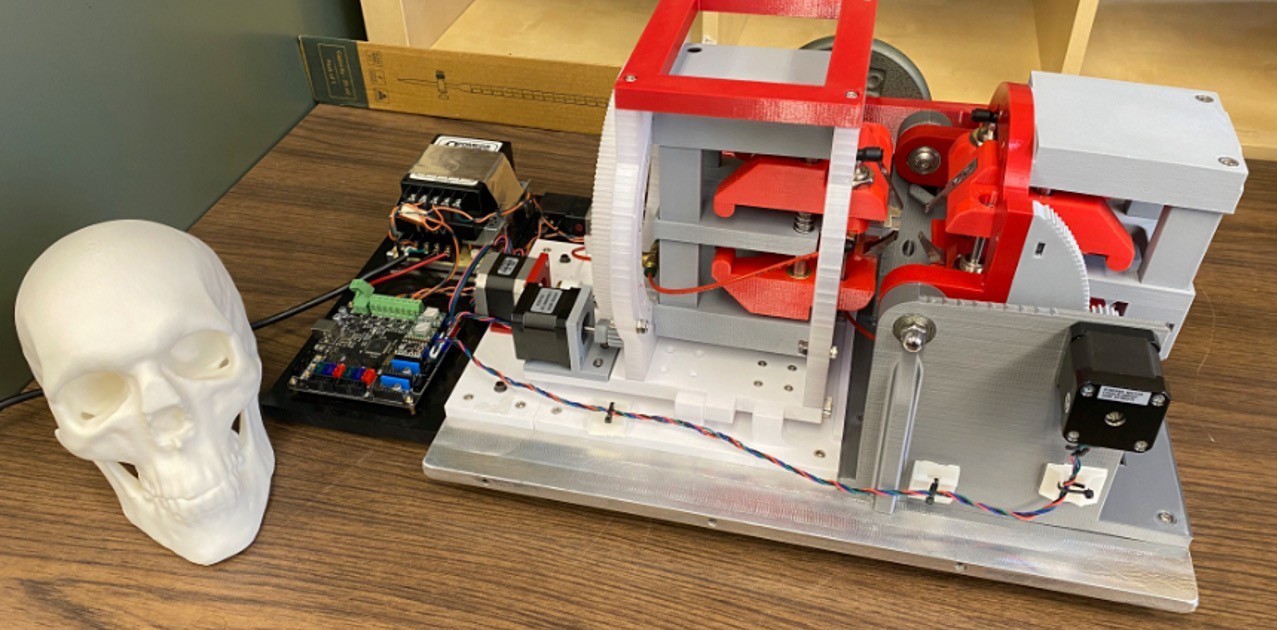Device Saves Time by Automatically Bending Metal for Surgery
Outcome/Accomplishment
Researchers have filed for a patent and started planning a spin-off company to manufacture the Bendy Bot, which will help surgeons quickly create titanium plates to repair bones. The research is supported by Hybrid Autonomous Manufacturing–Moving from Evolution to Revolution (NSF HAMMER), a U.S. National Science Foundation (NSF)-funded Engineering Research Center (ERC) headquartered at The Ohio State University.
Impact/Benefits
Designed to assist surgeons, Bendy Bot reduces the time and effort needed to shape plates that hold together bones, ensuring precision and efficiency.
Explanation/Background
Bendy Bot is an automated bending system for medical fixation hardware. It produces fixation plates more quickly and accurately than those produced in the current manual process. Also, deformation processing may be faster and provide better material properties than additive manufacturing. Deformation processing is also adaptable to a far larger number of materials and at possibly lower cost.
Surgeons currently bend metallic-fixation plates by hand to fit the patient’s anatomy. The manual adjustment of the fixation plate can be time-consuming and is prone to geometric error due to metal’s tendency to spring back and the limits of human inspection. The Bendy Bot can automatically bend titanium into the desired shape in as few as 90 seconds.
Location
Columbus, Ohiowebsite
Start Year
Advanced Manufacturing
Advanced Manufacturing
Lead Institution
Core Partners
Fact Sheet
Outcome/Accomplishment
Researchers have filed for a patent and started planning a spin-off company to manufacture the Bendy Bot, which will help surgeons quickly create titanium plates to repair bones. The research is supported by Hybrid Autonomous Manufacturing–Moving from Evolution to Revolution (NSF HAMMER), a U.S. National Science Foundation (NSF)-funded Engineering Research Center (ERC) headquartered at The Ohio State University.
Location
Columbus, Ohiowebsite
Start Year
Advanced Manufacturing
Advanced Manufacturing
Lead Institution
Core Partners
Fact Sheet
Impact/benefits
Designed to assist surgeons, Bendy Bot reduces the time and effort needed to shape plates that hold together bones, ensuring precision and efficiency.
Explanation/Background
Bendy Bot is an automated bending system for medical fixation hardware. It produces fixation plates more quickly and accurately than those produced in the current manual process. Also, deformation processing may be faster and provide better material properties than additive manufacturing. Deformation processing is also adaptable to a far larger number of materials and at possibly lower cost.
Surgeons currently bend metallic-fixation plates by hand to fit the patient’s anatomy. The manual adjustment of the fixation plate can be time-consuming and is prone to geometric error due to metal’s tendency to spring back and the limits of human inspection. The Bendy Bot can automatically bend titanium into the desired shape in as few as 90 seconds.


